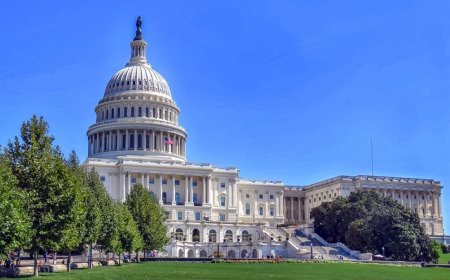China Remains a Dominant Force in Bitcoin Mining Despite Cryptocurrency Ban, According to CryptoQuant
Despite a ban on cryptocurrencies, China still commands 55% of the global Bitcoin hashrate. Meanwhile, the United States follows closely, with its mining pools accounting for 40% of the total share.

Despite a ban on cryptocurrency mining and trading since 2021, China still holds a significant 55% of the global Bitcoin network's hashrate, according to CryptoQuant data. While China's dominance remains strong, it is increasingly contested by countries like the U.S., which now accounts for around 40% of the hashrate, largely through institutional miners employing cutting-edge technologies.
CryptoQuant's CEO, Ki Young Ju, highlighted that while U.S. mining pools are largely institutional, Chinese pools continue to bolster smaller operators, showcasing resilience despite strict legal prohibitions against crypto activities.
China's stringent regulatory approach to cryptocurrencies is among the world's toughest. It began with a 2017 ban on Initial Coin Offerings (ICOs) and the closure of domestic exchanges, followed by the 2021 prohibitions. These measures aim to mitigate the financial and environmental risks linked to cryptocurrencies. Nevertheless, the decentralized nature of Bitcoin has enabled miners to circumvent these bans, preserving China's significant influence over the global Bitcoin network.
Moreover, despite official restrictions, underground cryptocurrency trading flourishes in China, facilitated by VPNs and social media platforms, with transactions reportedly totaling about $86 billion annually.
Simultaneously, China is developing the digital yuan, a central bank digital currency (CBDC) overseen by the People's Bank of China (PBoC), reflecting a strategic move to control financial activities while curbing the impact of decentralized cryptocurrencies like Bitcoin.
Industry figures such as Tron founder Justin Sun have called on China to reconsider its crypto policies to foster competition with the U.S., which has embraced a more crypto-friendly stance under former President Donald Trump. This rivalry could potentially spur significant innovations within the sector.
Recent developments suggest a potential softening of China's crypto policies, particularly as it shows increased interest in blockchain technology and as Hong Kong emerges as a new crypto hub with Beijing's tacit approval.
Although China's official position remains restrictive, these trends indicate a possible reevaluation of its stance on cryptocurrencies in the future. However, any definitive policy changes are yet to be confirmed.
What's Your Reaction?




































